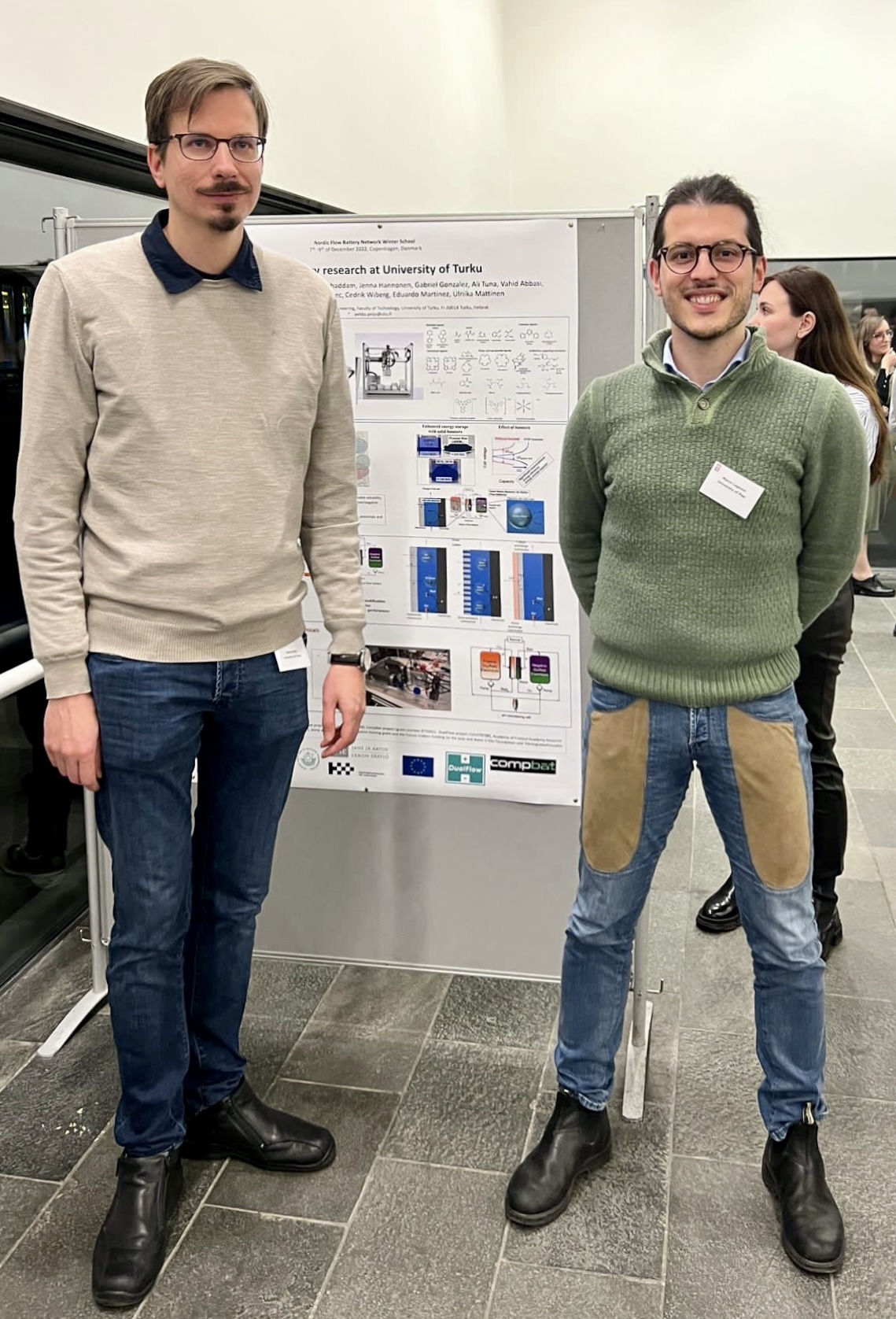The 2nd edition of the Nordic Flow Battery Network Winter School was held at the Technical University of Denmark (DTU) campus in Lyngby, Copenaghen, between the 7th and 9th of December, 2022.
After a promising 1st edition (Turku 2021), this 2nd edition of the winter school brought together more than 50 people, including PhD students, researchers, and professors from all over Europe.
The incredible context of the glass hall of the DTU campus, and light snowfalls, were the perfect setting for the winter school advanced topics on redox flow batteries.
During these three intense days, well-known experts from Academia, research centres, and industry shared their knowledge and outlook on the current status of the redox flow battery technology and provided guidelines for the upcoming research.
An in-depth analysis of the current trends in redox flow battery technology, in parallel with the sustainability topic related to Life Cycle Assessment analyses, sets the general background of the technology status. Comprehensive lectures on membrane physical phenomena, characterisation, synthesis, and the electrode and reactor design highlighted the importance of the multiscale interaction between reactive species in redox flow batteries. Novel materials and alternative routes for material synthesis have been presented, spanning from anolyte, posilyte, and membrane components. In addition, two companies provided their growth experience by providing an industrial insight into redox flow batteries’ scalability and development challenges within the context of the Risø research facility, where the community visited the industrial 120 kWh flow battery system.
Such an event has been an excellent opportunity where senior and young researchers had the chance to confront their results, find inspiration, and define the future direction of their work in redox flow batteries research.

Here in the photo CompBat project coordinator Pekka Peljo from Turku University presenting us in the poster jointly with Marco Lagnoni, University of Pisa team member.
